Innovate
Tomorrow’s Health Takes Center Stage at HIMSS 2024

Tags:
BNO shares perspectives from the intersection of health and technology
Shaping the future of healthcare—that’s what brought over 35,000 professionals together at HIMSS 2024, the annual meeting of the Healthcare Information and Management Systems Society. The world’s leading healthcare information and technology conference, HIMSS 2024 explored how emerging technology can support clinical staff by reducing administrative burdens, increasing operational efficiencies, and leveraging data to deliver better patient care.
We attended HIMSS 2024 and were invigorated by the theme of this year’s conference: Creating Tomorrow’s Health. We eagerly heard what’s on the minds of thought leaders across the healthcare ecosystem. Now, we’re proud to share a glimpse into their vision for harnessing the full potential of information and technology to shape the future of healthcare.
The sustainability north star
Hal Wolf, president and CEO of HIMSS, took to the stage encouraging the audience to “quicken the pace” of progress in healthcare technology adoption. He stressed the need to “create new tools and develop them to move patient operations forward as fast as possible.” Citing aging populations and staff shortages, Wolf argued: “We know that our workforces need a different path. Business as usual isn’t possible.” He discussed why sustainability is critical and how it applies to three key areas.
- Primary care practices: Twenty years ago, concern for the sustainability of primary care was rising. Chat, text message, and video were introduced to primary care practices, raising the question of whether they could handle the influx of new communication channels. In order to meet increasing demand, primary care practices must once again embrace new technology.
- Delivery systems: Large healthcare systems need a new path forward, one that allows them to adapt care models quickly and meet population needs. Taking an outside-in approach, digital health can fill gaps and bring information from the home to the healthcare provider, providing a path to large healthcare system sustainability.
- Environmental impact: Today, 8.5% of all carbon emissions in the U.S. (and 5.2% globally) are generated by the healthcare industry. Wolf noted that these figures present a clinical responsibility to the environment and an opportunity to utilize technology to address them.
“In the end,” said Wolf, “all three areas must be brought together to create sustainability. Tech alone doesn’t do anything. It’s people-process-technology. All three have to come together.”
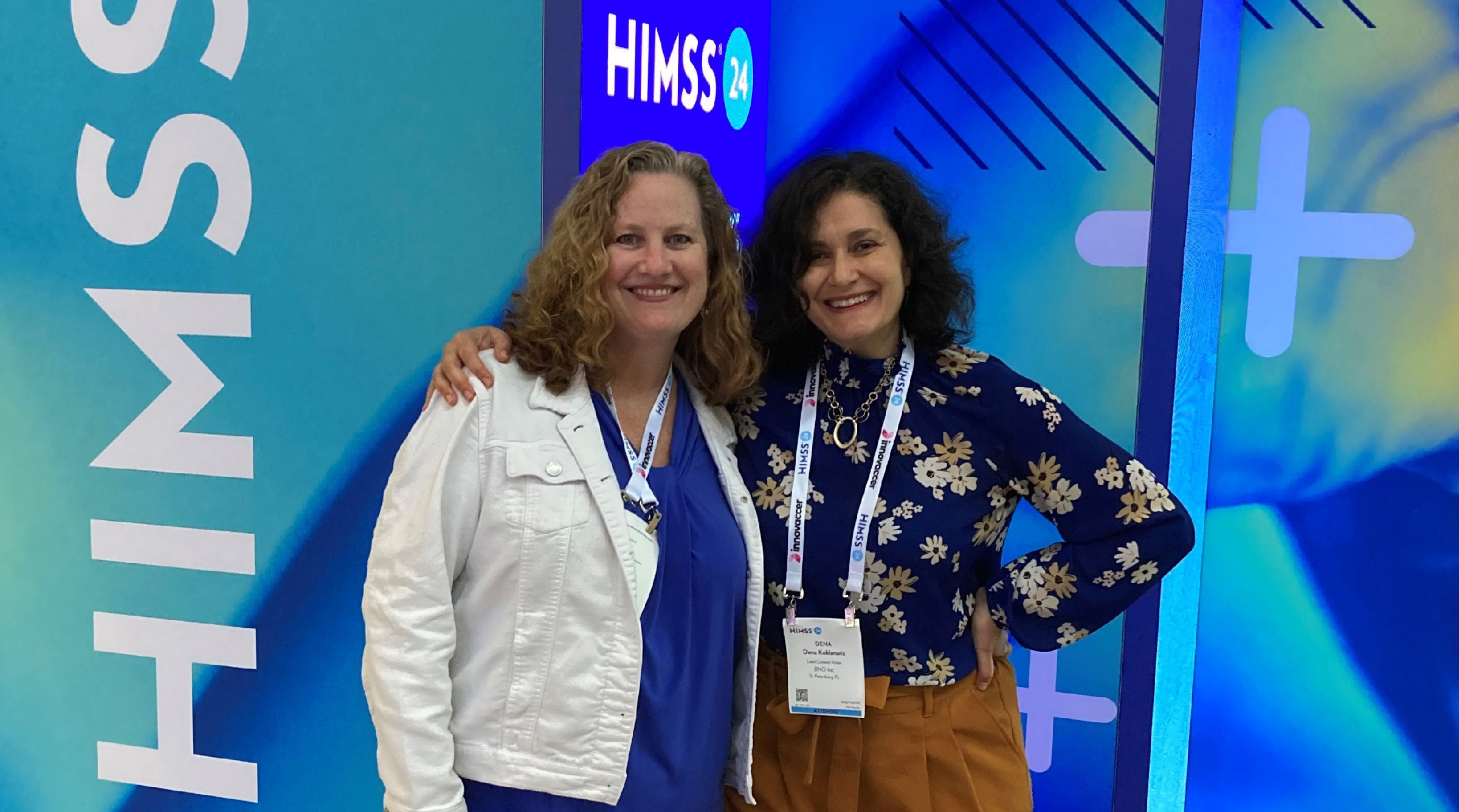
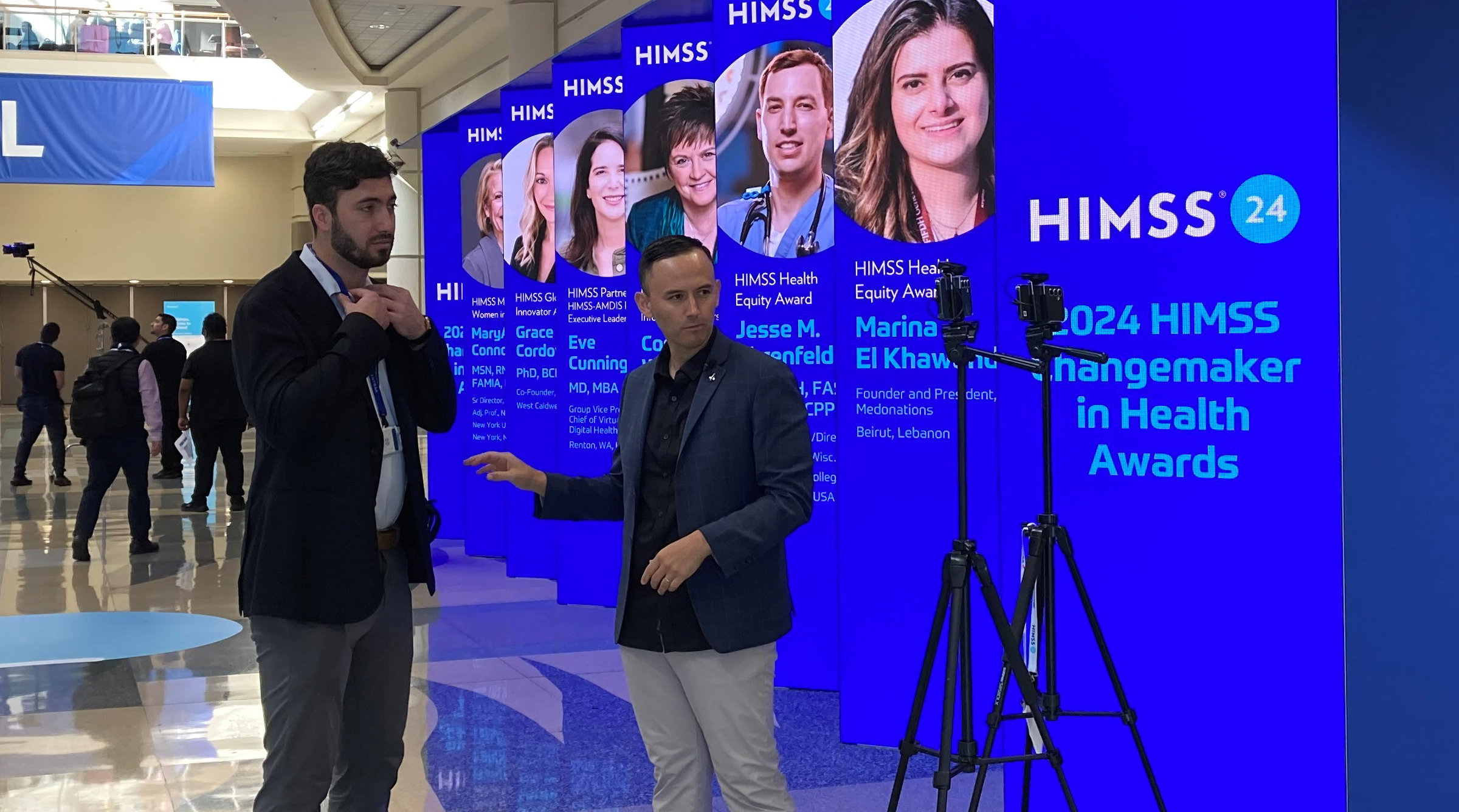
AI: answering the call for a radical healthcare transformation
Following his opening remarks, Wolf brought Robert Garrett, CEO of Hackensack Meridian Health in New Jersey, to the stage. In a keynote titled “Personalizing the Patient Experience: Harnessing the Power of AI to Drive Real Transformational Change,” Garrett stated that healthcare needs a radical transformation. “AI and industry partnerships have the potential to improve health for billions of people,” he said. “We can’t reach our highest aspiration to redefine healthcare without a revolutionary approach.”
Garrett, who chairs the World Economic Forum’s Health and Healthcare Governor’s Community, shared four global healthcare priorities where AI can make a difference.
- Expanding access to healthcare: In the U.S., one in every four people doesn’t have a primary care physician. AI can support access to healthcare in rural communities in the U.S. as well as in underdeveloped countries.
- Improving outcomes: Predictive analytics can empower physicians to deliver better value. AI can be harnessed to predict the onset of a disease, giving physicians the tools to provide personalized treatment plans.
- Promoting health equity: AI can help to identify the social determinants of health. If done correctly and governed well, it can link people who are at risk or have exposure to diseases to great care, bridging gaps, and closing disparities.
- Addressing climate change: Around the world, 1.8 billion people are drought-stricken. By identifying major climate events, AI can help combat climate change.
Garrett shared that he was an optimist when he began his career 40 years ago, and remains one today. While healthcare faces widespread challenges like staffing shortages and burnout from COVID-19, “we have the capabilities to drive meaningful progress,” he said.
Eliciting a round of applause, Garrett proclaimed that “technology can eliminate mundane tasks so that clinical teams can do what they love: connect with patients.” He argued that AI gives us the opportunity to take another quantum leap forward. “Healthcare can be a universal right for all, instead of a privilege for some.” He concluded by reminding the audience to keep the patient at the center. “On this journey, we must always remember that humans are the heart of healthcare. Never lose sight of our larger goal,” he said, “to enhance the quality of people’s lives in the most fundamental ways.”
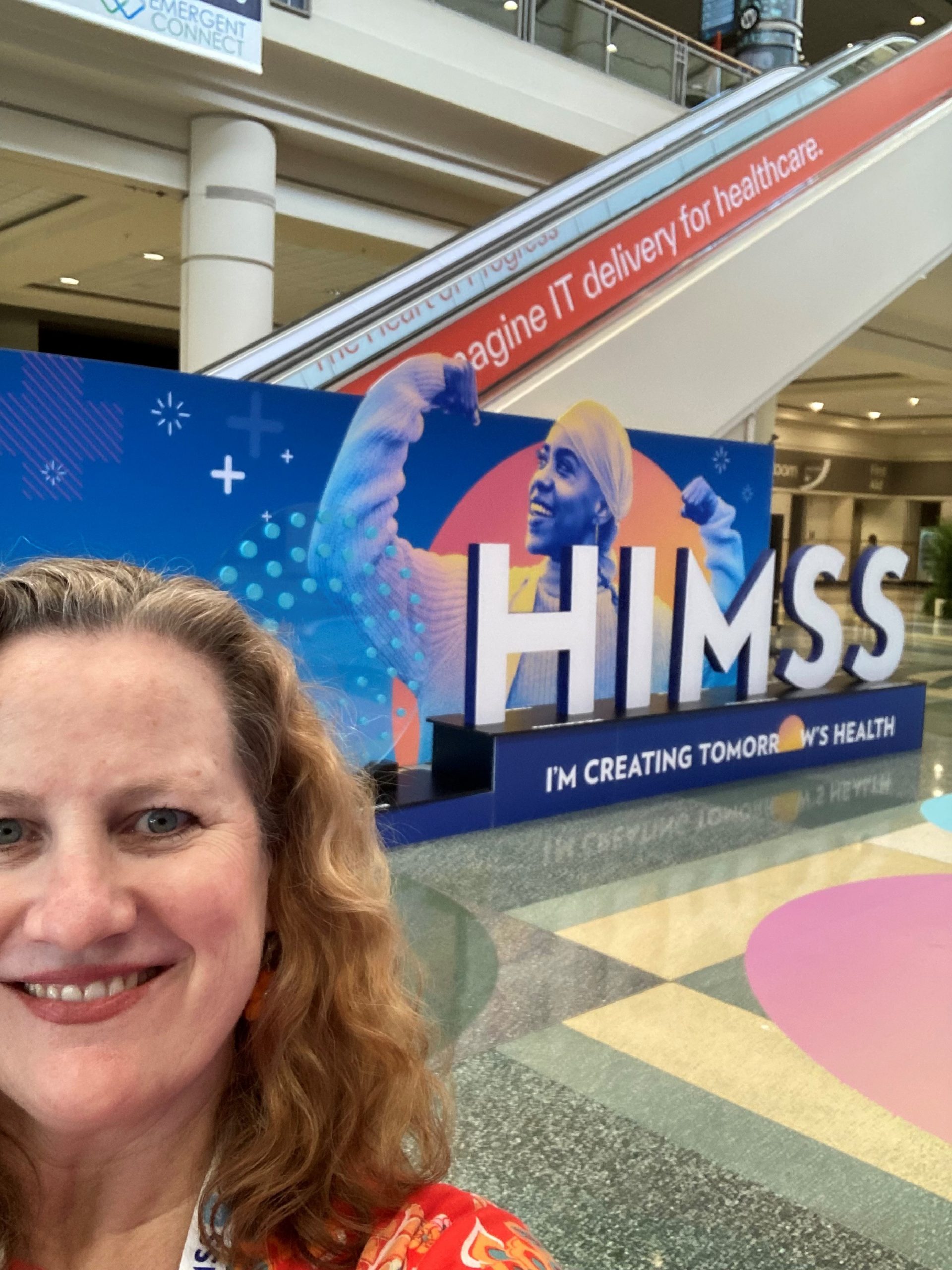
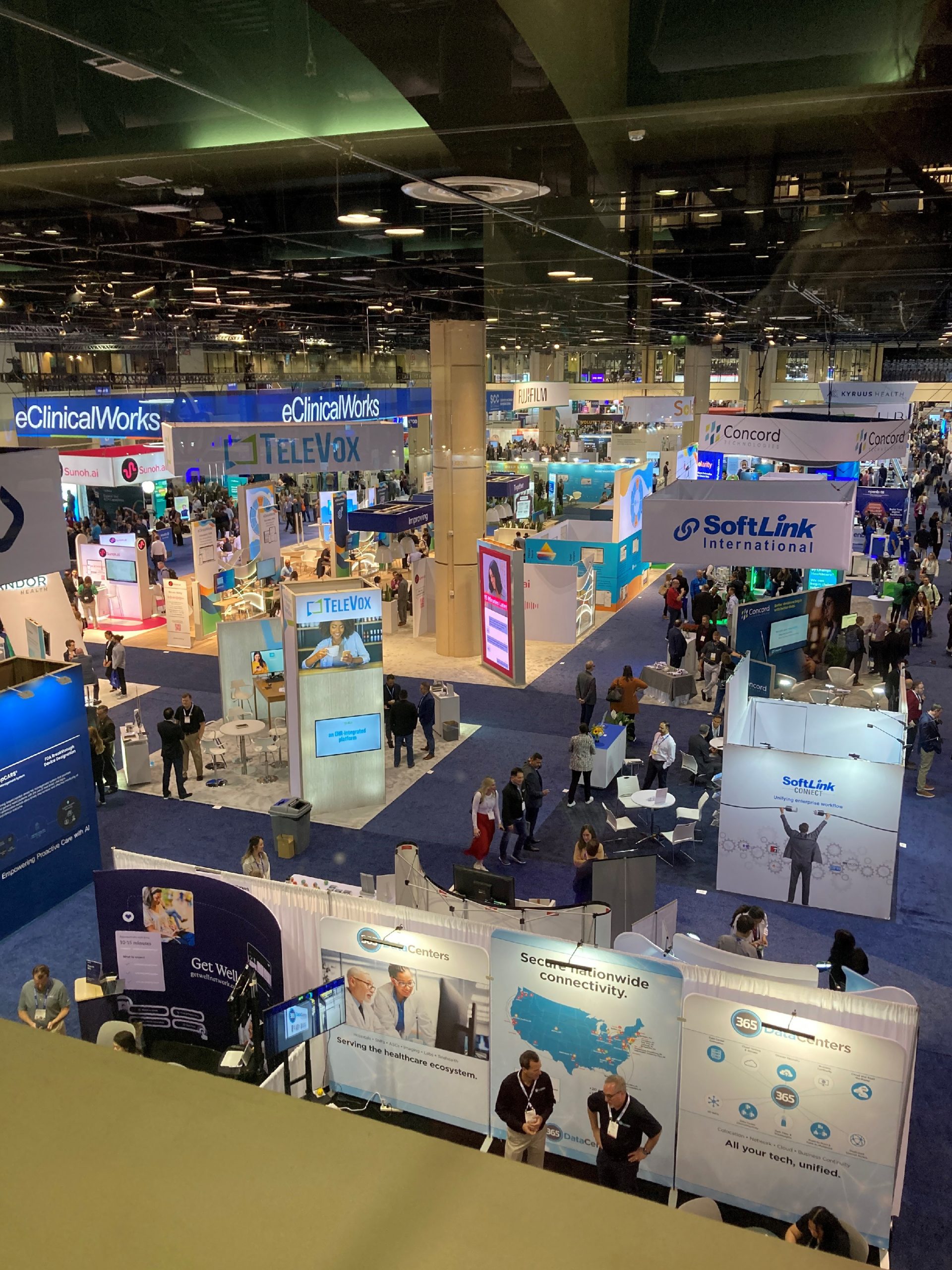
Enriching our perspectives on AI in healthcare: a thought leader Q&A
At the close of Garrett’s keynote address, Wolf brought Matt Renner, president, Global Field Organization—Google Cloud, to the stage. Renner and Garrett participated in a lively Q&A, moderated by Wolf, on the future of AI in healthcare. Below are a few highlights.
On ChatGPT and generative AI in healthcare
Renner: “It’s been an amazing year. From a business case, AI can help with productivity to reduce nursing burnouts.” Renner stated that virtual assistants can cut the time it takes nurses to hand off information by 80%. At the Mayo Clinic, the contouring process takes clinicians and radiologists 7-10 hours. “With AI models,” said Renner, “we can reduce that time by 85%.”
Garrett: Surveys at Hackensack revealed that one out of three nurses wants to leave the profession in the next two years. The biggest cause: not spending enough time with patients. Garrett argues that AI can “enhance productivity and reduce turnover.”
On governance processes for consumer and enterprise data sets
Garrett: “Governance in an organization has to be centralized.” He stated that knowing the source of data is essential to data governance. “At Hackensack Meridian, we take governance seriously. We don’t want to stifle innovation, but we do want to ensure consistency of data.”
Renner: “First, you need to have a security strategy in place. There are lots of bad actors out there trying to break into systems on a daily basis.” He encouraged the audience to constantly refresh their security systems and choose their software-as-a-service (SaaS) partners wisely. “Make sure they are held accountable, and your partnership is built on a cornerstone of trust. You have information that can save lives.”
On what’s ahead
Renner: “It’s a marathon, not a sprint. Customers are getting smarter.” He discussed ways that AI is being used in retinopathy to assist in detecting diabetic blindness. “Right now, it’s an assistant, but it will ultimately be helpful.”
Garrett: “Some of these exciting use cases that are pilots now will start to roll out into practice.” He also believes that by HIMSS 2025 we will have a sound structure and regulations in place. While much progress has been made, “fasten your seatbelts,” he said, “there’s more to come.”
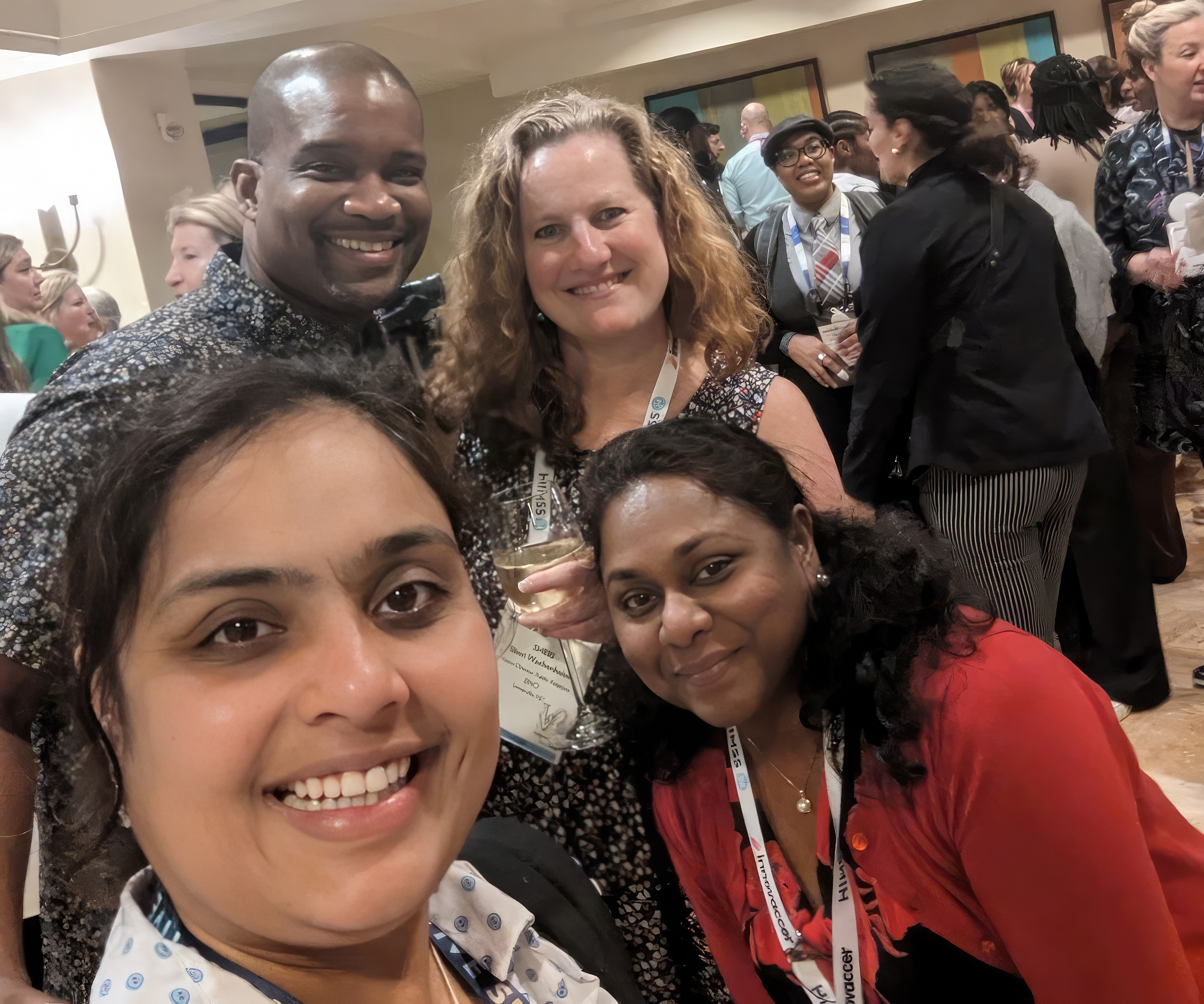
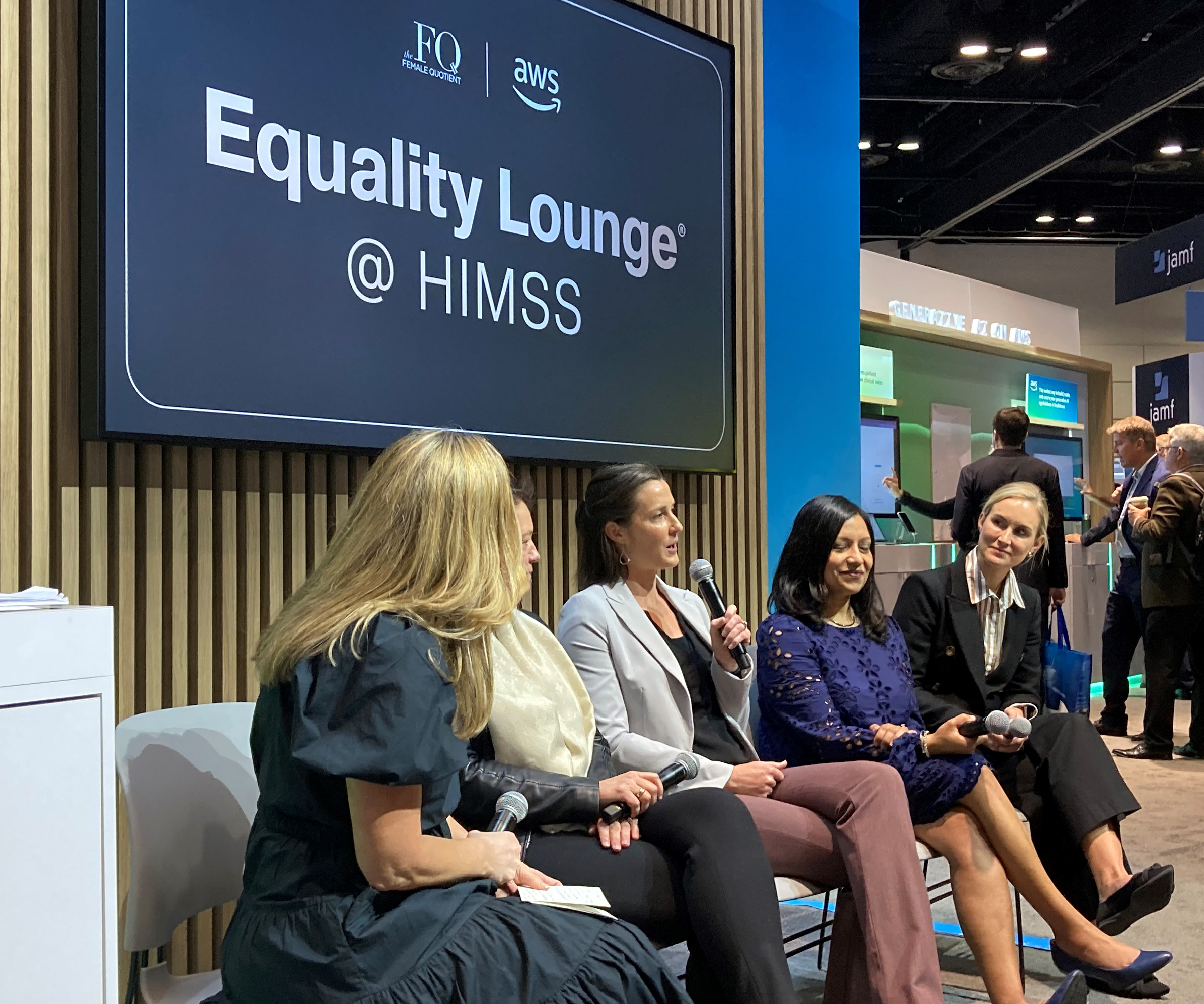
At BNO, we’re committed to helping our diverse roster of clients in healthcare navigate an ever-changing landscape while keeping patients at the center of everything they do. From creative, branding, and social to editorial, search, and media and analytics, our expertise helps health brands make rational and emotional connections with stakeholders across the healthcare ecosystem. If you’re ready for a marketing partner who is dedicated to telling your story, we can help. Connect with us today at info@bnoinc.com to start the conversation.



